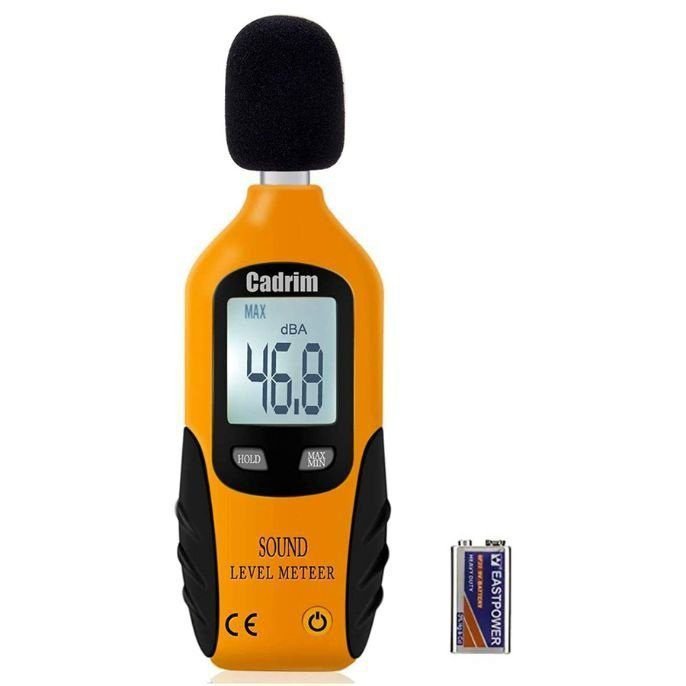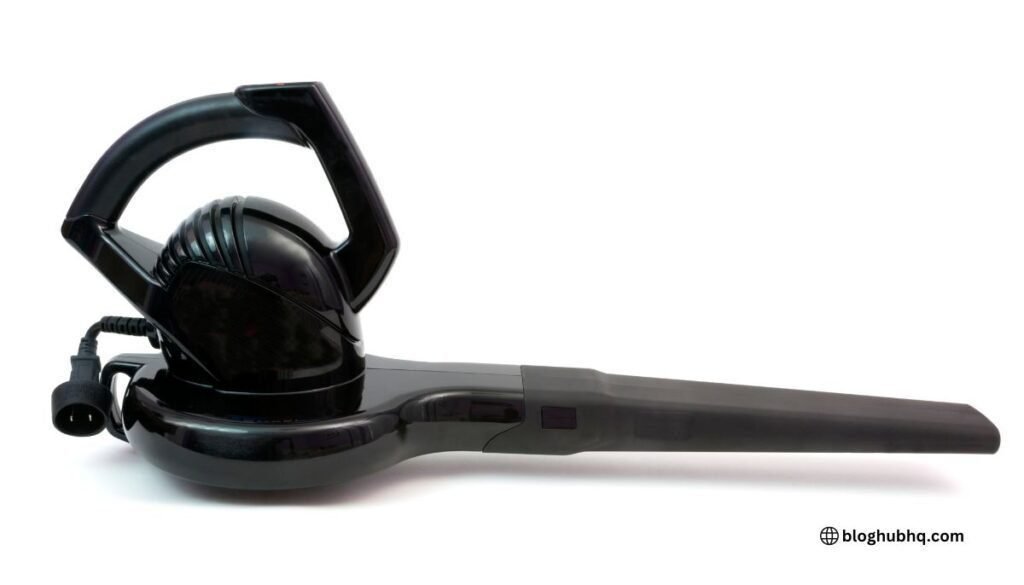Electric leaf blowers are increasingly popular for homeowners and landscapers. They’re efficient, eco-friendly, and can tidy up any yard in a fraction of the time compared to manual tools. But one question remains for many: How much dnb does an electric leaf blower produce?
Understanding how loud a tool is can have a significant impact on your health, your neighbors, and even local noise regulations. In this article, we’ll break down the noise levels of electric leaf blowers, compare them to other options, and offer tips on reducing the sound output. Let’s dive in!
Understanding Decibels (dB) and Noise Levels
Before we can address how much noise an electric leaf blower produces, it’s crucial to understand what decibels (dB) are and why they matter.
What is a Decibel (dB)?
Sound intensity is measured in decibels (dB). The dB scale is logarithmic, meaning every 10 dB increase represents a sound 10 times more intense. For example, a sound at 70 dB is 10 times louder than one at 60 dB.
Thresholds of Hearing and Pain
The human ear can hear sounds as low as 0 dB (the quietest whisper) to 140 dB (the threshold of pain). Everyday sounds typically fall within the following ranges:
- 40-60 dB: Normal conversation
- 70 dB: Average street traffic
- 90 dB: A lawnmower or loud motorcycle
- 110+ dB: Rock concert or a chainsaw
Why Decibels Matter for Electric Leaf Blowers
For electric leaf blowers, understanding decibel levels is essential. Anything above 85 dB can lead to hearing damage over time. For tools used in residential areas, lower noise levels help avoid disturbing neighbors or violating local noise ordinances. Electric models tend to produce less sound than gas-powered ones, but how much quieter are they really?
Why Noise Levels Matter for Electric Leaf Blowers
Noise Pollution and Community Regulations
Noise pollution is becoming an increasing concern, especially in residential areas. Some cities have imposed regulations on how much noise landscaping tools like leaf blowers can make. For instance, in some neighborhoods, leaf blowers that produce more than 65 dB may only be used during certain hours of the day.
Why does this matter?
- Fines and Penalties: Violating noise ordinances could result in fines or community complaints.
- Neighborhood Harmony: Keeping noise levels down helps maintain a peaceful environment for everyone.
Impact on Health and Well-Being
Prolonged exposure to loud noises can cause several health problems. Excessive noise can lead to stress, high blood pressure, sleep disturbances, and even permanent hearing loss. Using a quieter leaf blower could reduce the risk of these adverse effects, especially for those using the tool regularly.
Comparison to Gas-Powered Models
Gas-powered leaf blowers are notorious for their loud engines. Many gas models can produce noise levels between 90 to 100 dB. On the other hand, electric leaf blowers typically range between 55 to 75 dB, making them a quieter and more neighbor-friendly option.
Average Decibel Ratings of Electric Leaf Blowers
Now, let’s answer the burning question: How much dnb does an electric leaf blower produce?
Range of Decibel Ratings
Electric leaf blowers are known for being quieter than their gas-powered counterparts. The average decibel range for electric models typically falls between 55 and 75 dB, depending on the specific model and power settings. This range is comparable to background music in a restaurant (70 dB) or a vacuum cleaner (65 dB).
Comparison Across Brands and Models
Different brands and models produce varying levels of noise. Here’s a comparison of some popular electric leaf blower models:
- Greenworks Pro 80V: 60 dB
- Ryobi 40V HP Brushless: 62 dB
- EGO Power+ 56V: 64 dB
- Toro PowerPlex 40V: 66 dB
The noise levels depend on motor design, power settings, and whether the blower has features like turbo mode.
Factors Influencing dB Levels
Several factors affect the noise levels of electric leaf blowers:
- Motor Power: Higher power settings usually result in more noise.
- Speed Settings: Adjustable speed settings allow users to lower the noise output when needed.
- Design: Some models are designed specifically with noise reduction features, making them quieter than others.
Noise Table for Electric Leaf Blowers
| Brand/Model | dB Level |
| Greenworks Pro 80V | 60 dB |
| Ryobi 40V HP Brushless | 62 dB |
| EGO Power+ 56V | 64 dB |
| Toro PowerPlex 40V | 66 dB |
How to Measure and Reduce dB Levels from Your Leaf Blower

Measuring dB with a Decibel Meter
You can easily measure the dB levels of your electric leaf blower with a decibel meter. These handheld devices can provide an accurate reading of the noise produced by your blower. Simply turn on your blower, place the decibel meter at ear level, and note the reading. Many smartphones also have apps available to measure decibel levels.
Operating the Blower in Low Noise Modes
Many electric leaf blowers come with multiple speed settings. If you’re working in a noise-sensitive area, try using the blower at a lower setting to reduce noise output. While the blower may not be as powerful at lower speeds, it’s often a worthy trade-off for minimizing noise pollution.
Noise-Reduction Techniques
If you’re serious about lowering the noise produced by your blower, consider these noise-reduction techniques:
- Use a blower with a quieter motor: Some models are designed for quiet operation.
- Add a nozzle attachment: Certain attachments can help direct airflow more efficiently, reducing noise.
- Use ear protection: While this doesn’t lower the blower’s output, it does protect your hearing from prolonged exposure to high noise levels.
Regulations and Recommendations on Noise Levels
Local Regulations on Noise
Noise regulations vary from one municipality to another, so it’s essential to check local laws before using your leaf blower. In some areas, electric leaf blowers over 65 dB may only be used during specific hours, typically during the day. Penalties, including fines, may be imposed for breaking these ordinances.
Environmental and Community Considerations
Electric leaf blowers are not only quieter but also environmentally friendly. Choosing quieter models can help reduce noise pollution and create a more peaceful environment for your community. It’s a small step toward contributing to greener, quieter neighborhoods.
How to Stay Compliant
To avoid fines and complaints:
- Check local regulations: Be aware of noise restrictions in your area.
- Use your blower during designated hours: Many cities only allow loud equipment to be used during specific times.
- Opt for quieter models: Electric models generally help you stay below the noise thresholds set by local laws.
Alternatives to Electric Leaf Blowers for Lower Noise
Manual Tools (Rakes, Brooms)
If you’re looking for a silent alternative, manual tools like rakes or brooms can be effective. While they require more physical effort, they produce zero noise and don’t disturb your neighbors.
Battery-Powered Models
Battery-powered leaf blowers are typically the quietest among electric options. Models like the Greenworks Pro 80V and EGO Power+ are designed to operate with minimal noise while still providing powerful airflow for efficient yard work.
New Technology in Noise Reduction
As technology continues to evolve, manufacturers are working on noise reduction technologies for outdoor tools. Features like quieter motors, sound-dampening materials, and better airflow control are gradually making electric blowers even quieter.
Conclusion and Final Thoughts
To summarize, how much dnB does an electric leaf blower produce? Most models range from 55 to 75 dB, making them significantly quieter than gas-powered alternatives. Choosing the right model not only helps you comply with local noise regulations but also ensures a more pleasant experience for yourself and your neighbors.
When shopping for a leaf blower, consider the decibel rating as a key factor, especially if you live in a noise-sensitive area. Aim for models with lower dB levels, and always check local regulations to avoid any issues.
Now that you’re armed with the facts, it’s time to make an informed choice!
FAQ: How Much DnB Does an Electric Leaf Blower Produce?
1. What is the average noise level of an electric leaf blower?
The average noise level of an electric leaf blower ranges between 55 to 75 dB, depending on the model and its power settings. For comparison, this is similar to the noise level of a normal conversation or a vacuum cleaner. These levels are generally quieter than gas-powered leaf blowers, which can exceed 90 dB.
2. Is 70 dB too loud for a leaf blower?
A noise level of 70 dB is not considered overly loud, especially for outdoor tools like leaf blowers. It’s similar to the sound of traffic or a washing machine. However, it may still be too loud for prolonged exposure without ear protection. Many local regulations set the acceptable noise threshold at 65 dB or below, so be sure to check your area’s guidelines.
3. How can I reduce the noise from my electric leaf blower?
You can reduce the noise from your electric leaf blower by:
- Using a lower speed setting if available.
- Adding a noise-reducing nozzle attachment, which helps to direct airflow more efficiently.
- Maintaining the blower regularly, as well-maintained equipment tends to operate more quietly.
- Wearing ear protection to reduce personal exposure to noise.
4. Are there any regulations on how loud a leaf blower can be?
Yes, many municipalities have regulations that limit the noise level of leaf blowers, often restricting them to 65 dB or less during specific hours of the day. These rules vary by location, so it’s important to check your local ordinances to ensure you’re compliant.
5. How does an electric leaf blower compare to a gas-powered one in terms of noise?
Electric leaf blowers are significantly quieter than gas-powered ones. While gas blowers can produce 90 to 100 dB of noise (comparable to a motorcycle or a chainsaw), electric models typically operate between 55 to 75 dB. This makes electric models more suitable for residential areas where noise pollution is a concern.
If you found our content helpful don’t forget to share it on your social media: Twitter.
For more insightful articles related to technology, please visit BloghubHQ.

